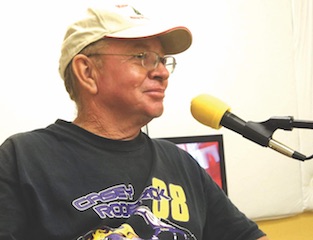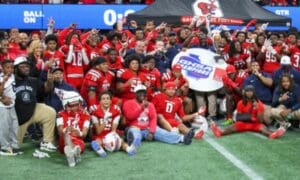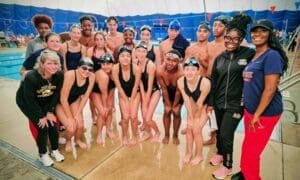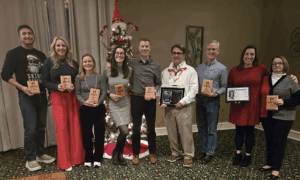I’ve been in the media long enough to know that every driver in the pit area at Senoia Raceway and at other tracks across America has a compelling story.
So when I write about an individual driver, I’m in no way ignoring the others out there. I’ll get to them when I can.
But I feel certain that few have a story as interesting as Fayetteville’s Glenn Morris.
For starters, he’s named for one of the sport’s all-time greats, Glenn “Fireball” Roberts, of NASCAR fame.
He’s the son of one of Senoia’s early stars, the late Bob Morris, and he’s probably the most loyal driver Senoia has ever had.
He’s one of the few who can say he drove his street car to a party one night and began his racing career in the same car the next night. Even though he’s a lot younger than me, he can say he’s prepared his cars in a shop heated by a pot-bellied coal stove, and managed to remain competitive for decades even as the cost of racing has skyrocketed and the technology has become complex.
His No. 27 cars were fixtures at Senoia back in the 1980s, and since it reopened as a dirt track, he hasn’t missed a race, including a few he promoted just before the Masseys and Doug Stevens took over. I think it’s fair to say that Glenn’s efforts in a time of transition at Senoia set the plate for the current promoters to come in and find success from the start.
Glenn’s wife Cheryl is an important part of his racing. She’s a lot like Delana Harvick of the NASCAR world in that she understands the sport, supports her husband’s participation in it and has good enough judgment about it that you’d better not ignore her advice.
As Glenn says: “She’s become a good little racer’s wife.”
And to top it off, he’s one of the most talented racers around, as Clint Smith stated on the Short Track Racing Show the other night.
Glenn, like Clint with his father Roscoe Smith, is proud of his family’s legacy.
People who have followed racing a lot longer than I’ve been around say Glenn races like his dad. And he’s a racer like his dad. There is a difference to me, as the term “racer” describes more about how a person approaches the sport, their sportsmanship and respect of the sport and their fellow competitors, and their dedication to what they do.
For those out there who never got to see Bob Morris in person, Glenn’s brother Robert has documented his career on a website, bobmorrisracing.com
That website is also a good history of the early days of Senoia Raceway and other tracks around the area, as the newspaper articles and photos on the site tell not only the stories of the Morris family but of the other competitors as well.
I hope one day someone will create a similar site about Glenn’s racing.
You sure won’t find much history of it at his muffler shop in Fayetteville. In fact, racing isn’t always a popular subject there. Non-racing folks around town don’t seem to appreciate Glenn’s dedication to the sport as much as I do and as much as many of you do.
Fairly often I hear something like this: “Ol’ Glenn does some really nice work on those mufflers. If he’d leave those race cars alone he’d be a rich man by now.”
I asked Glenn about that the other day.
His response was: “I don’t think you can build life-long friendships just by working on mufflers.”
He’s right. Racing has given him life-long friendships. It’s also given him a way to honor and carry on his daddy’s legacy.
That’s more than money can buy. I salute him for it.
[Rick Minter, a life-long resident of Fayette County, has been reporting on automobile races since 1976. He also owns Minter’s Farm and co-hosts the annual Inman Farm Heritage Days.]













Leave a Comment
You must be logged in to post a comment.